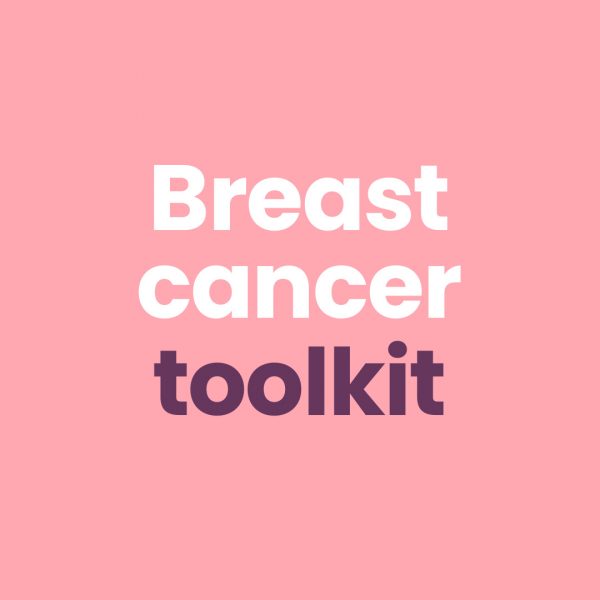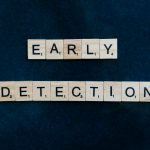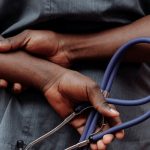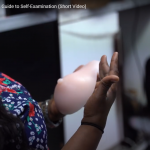
Mary Oladele has a powerful vision, to raise awareness about cancer within the Black, Asian, Minority Ethnic and Refugees (BAMER) communities, aiming to encourage individuals to talk more openly about cancer, instead of it being an illness to be ashamed of.
Mary discusses her personal inspiration behind creating Cancer Education UK. ‘After experiencing first-hand how a lot of Black, Asian and Ethnic minority individuals were delaying going to their appointments until a late stage in their cancer journey, this meant that the cancer was much less likely to be curable at that point, and made me aware of how much of a stigma cancer still holds amongst BAMER populations.’
She highlights how: ‘At the time, I was studying for my undergraduate degree and had to do a placement year at Guy’s and St Thomas’ hospital in London. I would see these patients coming in to the hospital, quietly sitting and generally looking quite miserable, without any of their family and/or friends for support. As a whole, these patients behaved in a way that evidently demonstrated their suffering and struggle with their treatments, and as if they wished for their treatment to be a secret. These individuals barely spoke, and rejected every form of support from other charities.’
Immeasurably, cancer is a debilitating disease, affecting individuals both physically as well as mentally. Thus, this is why being open about the disease and frequently talking to others is such a fundamental part of the coping and recovery process.
Through my charity, I have a voice to represent the BAMER community, and I aspire to see more provisions provided for patients going through cancer.
Mary notes: ‘I remember speaking with a few Aunties about how they viewed cancer. They labelled the illness as being a ‘white man’s’ disease, and as a punishment given to people for their actions, a view which contrasts many religious beliefs. They also viewed the illness as contagious and a death sentence for its sufferers.’
This was a shocking revelation, especially given the immense amount of information that there is about the disease online or easily available at our disposal. Ultimately, Mary felt that many were still uneducated about the disease, and avoided asking questions in light of how others may perceive them. She alarmingly notes: ‘I was invited to a forum where I was asked to speak about cancer, and I soon realised that the perception of cancer was also the same as with my Aunties. Truly, it was really distressing to see people losing their lives, due to the fact that their culture was not welcoming of any discussion about cancer and these people felt that they were unable to reach out for help because of fear and of being misunderstood.’
From these eye-opening experiences, she started the charity Cancer Education UK, to raise awareness about cancer within the Black, Asian, Minority Ethnic and Refugees (BAMER) communities. With setting up her charity, she also aimed to encourage individuals from these communities to start speaking about cancer more confidently and openly, and to ask more for support from their family and friends.
‘I wanted to provide support to help patients through their cancer treatment, and also help them reintegrate back into the community. It was a decision that I had to make alone; I grew up in a very philanthropic family, and always knew since childhood that I wanted to help other people as much as I could in my life.’
Mary is a Senior Therapeutic Radiographer, and treats adults and children with cancer using radiation. For the future, she hopes that in time and with growing recognition for her charity, cancer patients will be diagnosed much earlier as a result of ‘more cutting-edge treatment which will be provided to patients’, resulting not only in a reduction of trauma and emotional stress for the individual, but also helping to increase their chance of survival.
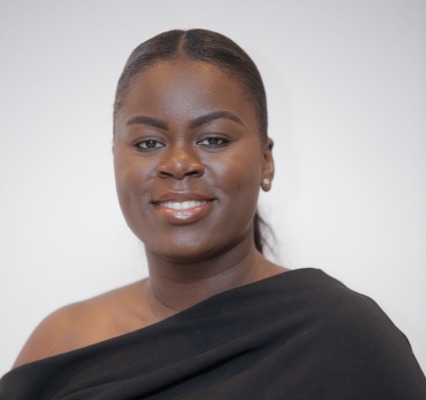
Mary Oladele
At Cancer Education UK, they are already providing this extra support in the way of physio and reflexology therapy to cancer patients with free complementary therapies to help ease their treatment.
‘Through my charity, I have a voice to represent the BAMER community, and I aspire to see more provisions provided for patients going through cancer. Financial support for instance would help patients not feel obliged to work whilst receiving their treatment, and help alleviate any worries that they may have about affording living expenses, including child care and paying for groceries. Most importantly, they can focus on getting through their treatment and surviving cancer’.
Significantly, cancer care took a turn for the worse this year with COVID-19 impacting the health care system immensely, resulting in hospitals being placed on high alert, meaning that cancer treatments were put on hold for many.
Mary, on reflecting on this period of time, emphasises how for her one of ‘the main challenges was the restricted access and support provided to patients’. She recalls witnessing patients ‘come alone for their treatment without their loved ones being present to support and encourage them.’ In her own words, she highlights how ‘this was one of the hardest adjustments to cope with as a health care professional, as even vulnerable young adults and the elderly had to come in alone. Patients on their toughest days couldn’t even be consoled with a hug which normally would have helped to boost their morale.’
‘However, working together as a team was one of the most heartfelt experiences during this time because everyone supported each other. The spirit of teamwork grew because we knew we relied on each other, which made it enjoyable to go to work during such an ordeal. But personally, I’ve had to look after myself physically and mentally during this time. I’ve been taking rest when needed, staying safe and spending time with my family via FaceTime.’
In her role as a Therapeutic Radiographer, Mary says what this job has taught her is that people are the greatest investment in this world, remarking how ‘the ability to help another person when they are completely helpless is the greatest reward ever. We’ve prevented another family, another mum, dad, sister, brother, husband or wife from losing their loved one and nothing, not even money, can buy or bring that back. It has also helped me to appreciate life a lot more, and to never take anything for granted.’
It is predicted that the disruption caused by COVID-19 will create more cancer related deaths. Currently, there are an estimated 35,000 cancer deaths due to COVID-19; this is due to many treatments being postponed or delayed, with waiting lists for some treatments just getting longer and longer.
‘Our biggest challenge in this current climate is changing people’s mindset about cancer, showing them that people can have cancer and be cured. They can still live a normal life and it is not a death sentence, but just another chapter in one’s life that they have to overcome.’
In particular, men from the BAMER community struggle to self-refer to doctors when they first notice signs and symptoms, despite being in pain due to symptoms or changes in their body. However, women from these communities tend to struggle with finding time to talk about cancer and are unable to ask questions openly. This is all the more reason why Cancer Education UK strives to reach out to these communities, by educating them until cancer becomes accepted and is an open talking point.
Mary speaks out on behalf of all BAMER communities, by hosting events and supporting local communities, especially those who are suffering in silence with cancer symptoms. ‘Your silence could cost someone their life; speaking up could be the call for action that someone needs, a catalyst which makes that next person visit their GP for a cancer referral. By speaking up, another son or daughter won’t lose their parents, a father or mother won’t lose their child, or a spouse won’t lose their loved one.’


